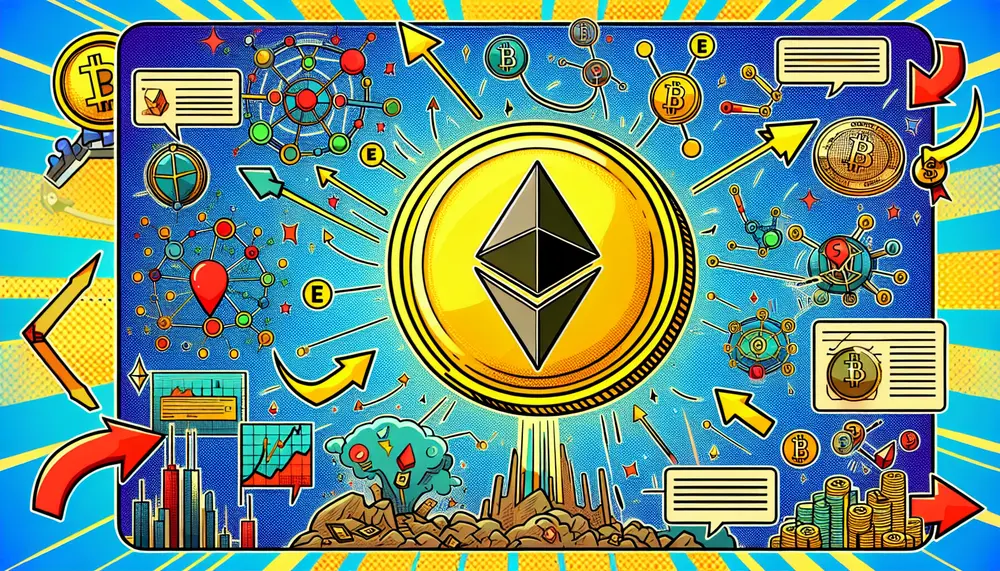Smart contract
Smart contract
What is a Smart Contract?
A smart contract is a self-executing contract with the terms of the agreement directly written into code. The code and the agreements contained therein exist across a distributed, decentralized blockchain network. Smart contracts permit trusted transactions and agreements to be carried out among disparate, anonymous parties without the need for a central authority, legal system, or external enforcement mechanism.
Key Features of Smart Contracts
Smart contracts are automatic, executing predefined rules once conditions are met. They are traceable, transparent, and irreversible, making them secure and reducing the likelihood of fraud or interference. Integration within cryptocurrencies and other digital assets makes them an essential tool in the digital economy, especially in crypto exchanges and all-in-one platforms.
Role in Crypto Exchanges
Within cryptocurrency exchanges, smart contracts facilitate automated, secure, and fast transactions. They enable features like automated liquidity pools, decentralized trading, and innovative financial services without intermediaries. This automation enhances user experience by providing quicker and more reliable service.
Benefits in All-in-One Platforms
For all-in-one platforms, which aim to offer a comprehensive suite of financial services, smart contracts are indispensable. They integrate multiple financial operations into single platforms, ensuring that transactions are not only secure but also seamlessly connected across different services and blockchain operations.
Conclusion
In summary, smart contracts are pivotal in enhancing the efficiency, security, and interoperability of various applications within the blockchain ecosystem. They are particularly influential in the realms of crypto exchanges and all-in-one platforms, where they drive innovation and user satisfaction.
Blog Posts with the term: Smart contract

The article discusses how AI and blockchain are transforming real estate investment trusts (REITs) by enhancing transparency, security, and data management, while also highlighting the potential impact of Antix Token in the cryptocurrency market through its AI-driven features....

The article discusses the emergence of new crypto projects in 2024, highlighting their potential to innovate through technologies like AI and DeFi while emphasizing key investment factors such as team expertise, market demand, and regulatory compliance....

TRON Coin (TRX), launched in 2017 by Justin Sun, aims to decentralize the entertainment and content-sharing industry using blockchain technology. Initially an ERC-20 token on Ethereum, TRON transitioned to its own mainnet in 2018, enhancing transaction throughput and lowering fees...

Polygon Coin, initially launched as Matic Network in 2017 by Jaynti Kanani, Sandeep Nailwal, Anurag Arjun, and Mihailo Bjelic, aimed to address Ethereum's scalability issues with faster transactions and lower fees. The rebranding to Polygon in February 2021 marked its...

The Bitcoin whitepaper, published in 2008 by the pseudonymous Satoshi Nakamoto, outlines a decentralized digital currency system that addresses issues like high transaction fees and fraud risks inherent in traditional financial systems. It introduces key concepts such as decentralization and...

The article explores the future of TRON Coin (TRX), detailing its current market status, short-term price predictions, and long-term growth potential. Key factors influencing TRON's trajectory include technological advancements, market sentiment, regulatory environment, adoption rates for decentralized applications (dApps) and...

The article explains the key factors influencing Bitcoin's value, such as market demand and supply, regulatory environment, technological developments, market sentiment, global economic conditions, and historical trends. Understanding these elements can help investors make informed decisions in the volatile cryptocurrency...

Ethereum, launched in 2015 by Vitalik Buterin, is a revolutionary blockchain platform that enables developers to build decentralized applications (DApps) using smart contracts. Its native cryptocurrency, Ether (ETH), powers the network and has driven significant innovation across various industries through...

Ethereum is a decentralized blockchain platform enabling smart contracts and dApps, proposed by Vitalik Buterin in 2013. Its native cryptocurrency, Ether (ETH), facilitates transactions and computational services on the network, with key features including decentralization, gas fees for operations, and...

Bitcoin analysts are optimistic about a potential price target of $120,000 as the market regains momentum due to increased investor confidence and favorable conditions. Despite recent volatility, including a pullback to around $84,000, traders remain hopeful for future growth under...

Despite a challenging Q1 for cryptocurrencies, factors like monetary easing, regulatory clarity, and stablecoin growth could drive recovery in Q2; XRP shows resilience with strong gains amid market volatility. Meanwhile, Ethereum's low transaction fees and upcoming upgrades signal potential renewed...

Crypto market capitalization in 2024 is crucial for assessing the cryptocurrency market's size and health, influenced by factors like regulatory developments, technological advancements, and macroeconomic conditions. Major cryptocurrencies such as Bitcoin and Ethereum significantly impact overall market cap trends, with...

Cardano has launched its first zero-knowledge smart contract on the mainnet, enhancing blockchain capabilities with secure transaction validation. Meanwhile, blockchain protocols are challenging digital advertising giants by offering tokenized rewards and data ownership models to users....

The creators of Pudgy Penguins are launching Abstract, a consumer-focused Ethereum layer-2 blockchain aiming to enhance crypto application interaction with low fees and high scalability. Meanwhile, Catly's developer denies using AI or NFTs in their game; challenges persist for blockchain...

